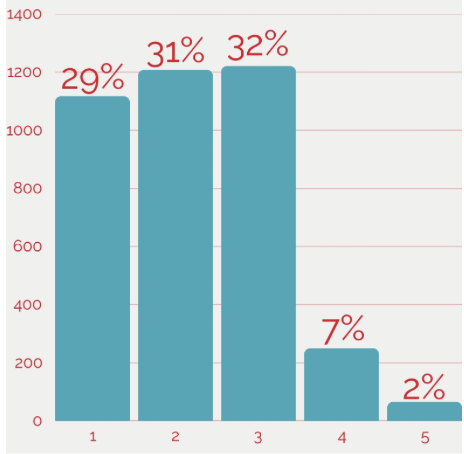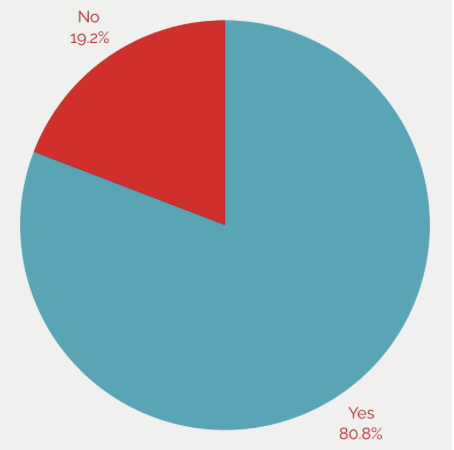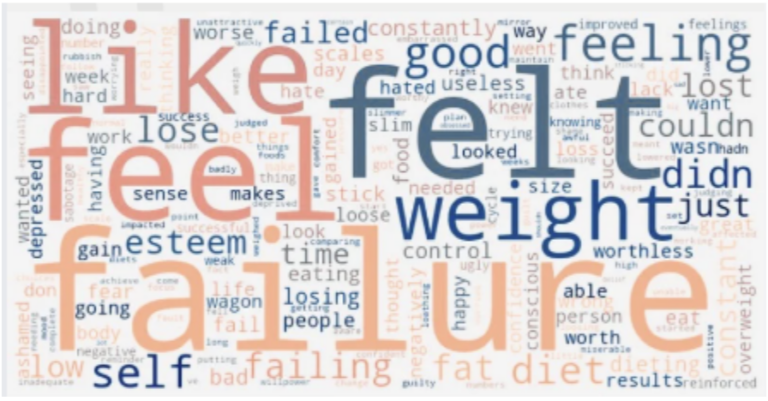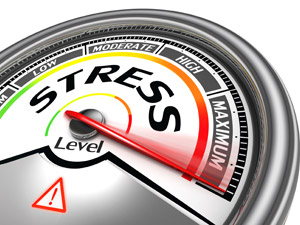Why Self-Esteem Matters More Than You Think
Last year, I surveyed almost 4,000 former dieters for my new book the Weights Over Take Back Control and asked them to rate their self-esteem before joining Slimpod—when they were still dieting. The results were shocking:
- 92% rated their self-esteem as 3 or below (on a scale of 1 to 5). 1 being lowest and 5 being highest.
- Of the 60% who rated themselves a 1 or 2, 80.8% said dieting had an impact on their self-esteem.


When we asked how dieting affected their self-esteem, the responses were heartbreaking:
📌 “I felt fat and depressed, like I kept failing.”
📌 “I wasn’t good enough. I felt socially unacceptable—seen as lazy and undisciplined.”
📌 “I believed I must be greedy and weak for eating more than others. Otherwise, why was I fat?”
📌 “I felt guilty when I ate something I loved. And then I’d feel even worse for giving in.”
📌 “If I ate one thing off plan, I felt like a failure.”

The Hidden Cost of Dieting on Self-Esteem
Low self-esteem isn’t just about feeling bad—it has a profound effect on how we treat ourselves, the choices we make, and even our health. When you believe you’re “not good enough,” it’s easy to slip into patterns of self-sabotage, emotional eating, or avoidance. It affects relationships, careers, and overall happiness.
And yet, diets never address this. Instead, they chip away at confidence even further, reinforcing the belief that “you just don’t have enough willpower”—which is completely untrue!
Rebuilding Self-Esteem—Without Diets
True confidence doesn’t come from losing weight—it comes from regaining control over your relationship with food and your mindset. So, how do you start rebuilding self-esteem?
✔ Recognise diet culture for what it is – A system designed to keep you in a cycle of failure. It’s not you that failed—the system failed you.
✔ Rewrite your internal dialogue – Start questioning the negative thoughts in your head. Would you say these things to a friend? If not, don’t say them to yourself!
✔ Focus on small wins – Every time you make a positive choice (eating when you’re hungry, stopping when you’re satisfied, moving your body because it feels good), celebrate it.
✔ Change your environment – Surround yourself with people and messages that lift you up, not tear you down. Ditch the scales, unfollow toxic weight-loss influencers, and start seeking out positive reinforcement.
✔ Retrain your brain – This is where Slimpod makes the difference. We rewire how you think about food so you naturally feel in control—without guilt, obsession, or self-sabotage.
The Weight’s Over—It’s Time to Take Back Control
My own lack of self esteem, brought about by being an overweight child, is what prompted me to start the Slimpod programme 15 years ago. It was also why I wrote this book. But when I saw the results of this survey, I was horrified by the real extent of the problem and how dieting had damaged so many people’s self-worth.
I explore self-esteem even further in my new book, which you can pre-order now! If you’ve ever felt trapped in a cycle of dieting, failure, guilt and self-blame, I promise you—there is another way. Here’s more on how the book will help you if you’re a Slimpodder!





1 thought on “The Shocking Link Between Dieting and Low Self-Esteem”
WOW Sandra what amazing facts about dieting a self esteem.
So incredibly true and has affected me most of my life. Your words are comforting and encouraging.
I will never be without Slimpod, it has changed my world. Thank you Sandra 🥰